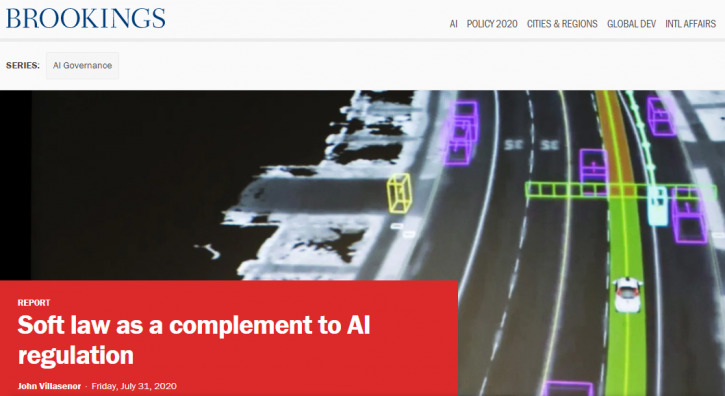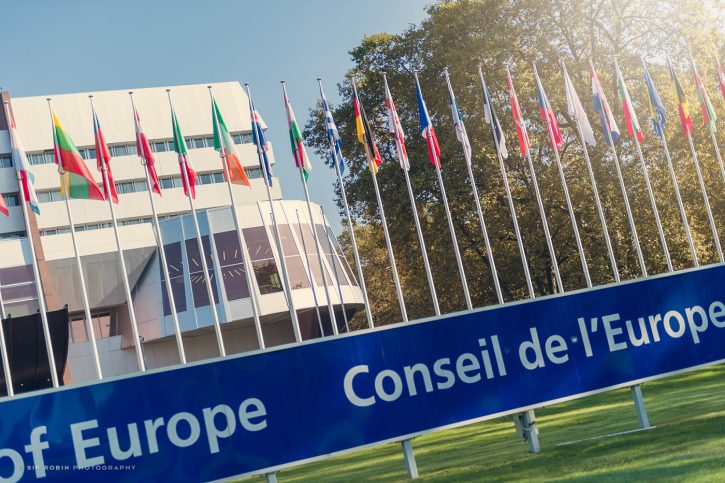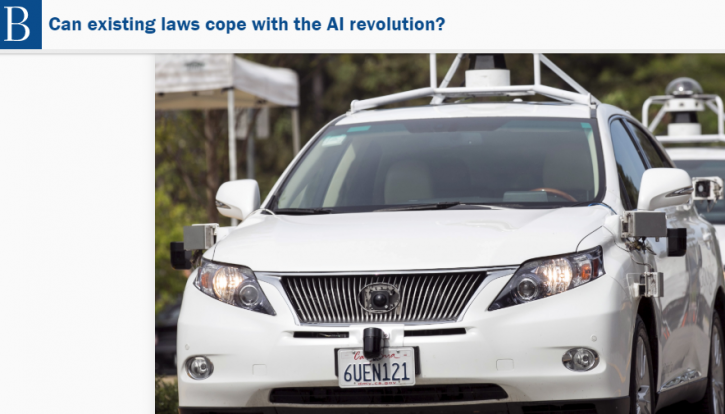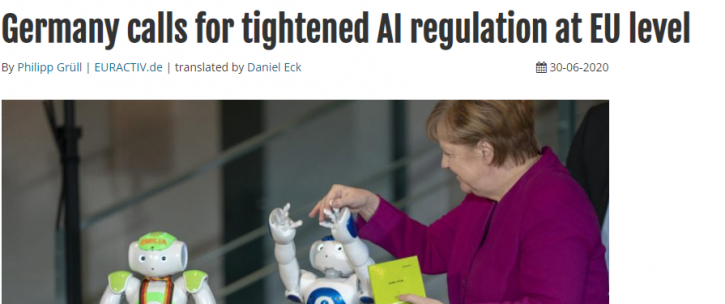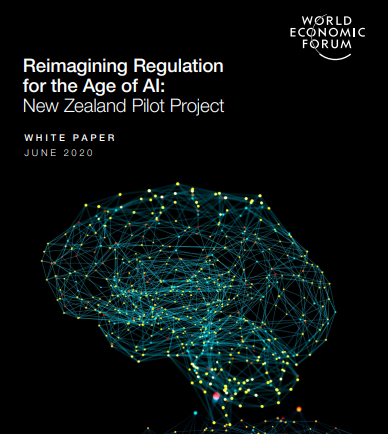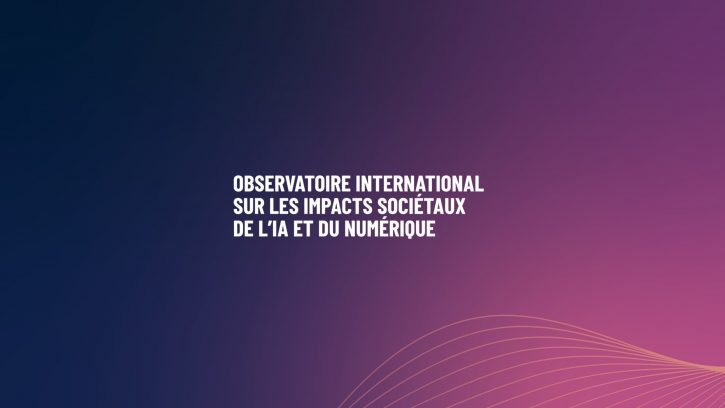In the media | Page 4
In the media
Soft law as a complement to AI regulation
While soft law has been applied in many fields, John Villasenor argues in a piece for the Brookings Institute, there are multiple reasons why it is particularly well suited for AI. First, the rapid pace of development of AI exceeds by far the capability of any traditional regulatory system to keep up. A second reason […] Read more
In the media
Council of Europe starts work on legally-binding AI treaty
The Council of Europe is working on a future legal framework to regulate the use of artificial intelligence (AI) across all 47 member states. The Council’s Ad hoc Committee on Artificial Intelligence (CAHAI) held a three-day meeting on 6-8 July attended by around 150 international experts. The purpose of the meeting was to draw up “concrete proposals […] Read more
In the media
Artificial intelligence: The Commission welcomes the opportunities offered by the final Assessment List for Trustworthy AI (ALTAI)
The European Commission welcomes today the Assessment List for Trustworthy AI (ALTAI), a check list for business and organisations to self-assess the trustworthiness of their artificial intelligence (AI) systems under development. This will further strengthen the benefits that AI yields to the economy and society as a whole. The concept of Trustworthy AI, introduced by […] Read more
In the media
Can existing laws cope with AI revolution?
A recent Brookings's article proposes a hypothesis which might surprise: As artificial intelligence spreads throughout society, policymakers face a critical question: Will they need to pass new laws to govern AI, or will updating existing regulations suffice? A recently completed study suggests that, for now, the latter is likely to be the case and that […] Read more
In the media
Germany calls for tightened AI regulation at EU level
Four months after the European Commission presented its ‘white paper’ on Artificial Intelligence (AI), the German government said it broadly agrees with Brussels but sees a need to tighten up on security. The government is particularly concerned by the fact that only AI applications with “high risk” have to meet special requirements. To read more […] Read more
In the media
La Nouvelle-Zélande fait paraître son livre blanc «Reimagining Regulation for the Age of AI»
New Zealand released a white paper earlier this month to help regulate AI, a project spearheaded by the World Economic Forum. The project aims at co-designing actionable governance frameworks for AI regulation. It is structured around three focus areas: 1) obtaining of a social licence for the use of AI through an inclusive national conversation; […] Read more
In the media
OBVIA : Petit guide sur les enjeux et opportunités des applications de notifications d’exposition à la COVID-19
The International Observatory on the Societal Impacts of AI and Digital - OBVIA - offers a guide to better understand the functioning of the different exposure apps to fight against COVID-19. Les applications de notifications d’exposition à la COVID-19 proposent des pistes de solutions intéressantes pour endiguer la pandémie avec laquelle nous sommes présentement […] Read more
In the media
Amazon and Microsoft pause police facial recognition and demand regulation
An article of Quartz reports that within 24 hours of each other, both Amazon and Microsoft this week pledged not to sell facial recognition tools to US police departments, acknowledging the concerns of researchers and activists who say the technology is biased and has grave potential for misuse. Nevertheless, some researchers worry that this will […] Read more
News of JusticIA's members In the media
The Innovative University: Renewing the Role of Universities in the Digital Innovation and Artificial Intelligence Ecosystem
9 June 2020 Catherine Régis / Cécile Petitgand / Jean-Louis Denis
Catherine Régis and Jean-Louis Denis are the leaders and co-authors of this position paper, outgrowth of the first U7+ summit, held in Paris alongside the July 2019 G7. Cécile Petitgand, post-doctoral fellow at H-POD, also is author and contributor of this report. Catherine Régis notably add that “with this position paper, we hope to stimulate […] Read more
In the media
L’application COVI écartée par le gouvernement canadien
5 June 2020 Vincent Gautrais
This content is not available in the selected language. Alors que la nouvelle tombe à l’effet que l’application COVI ne sera pas retenue par le gouvernement canadien, nous croyons particulièrement à propos de relayer le texte d’opinion du professeur Vincent Gautrais, directeur du CRDP, titulaire de la Chaire L.R. Wilson et chercheur du regroupement JusticIA : […] Read more
